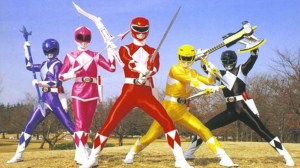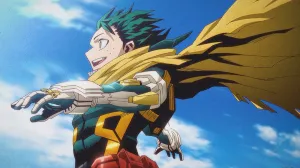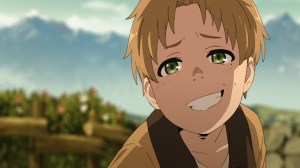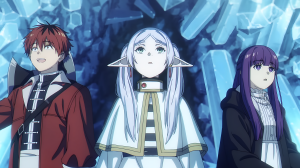We’re officially at the midway point of Orphan Black: Echoes, the new series spinning out of the events of the award-winning BBC America hit Orphan Black. Following a new cloning conspiracy decades in the future, Echoes made a surprising pivot with this week’s fifth episode, revealing the origin story of one of its central protagonists, the now-adult Kira Manning (Keeley Hawes). Spoilers for the fifth episode of Orphan Black: Echoes, “Do I Know You?”, below! Only look if you want to know! “Do I Know You?” encompasses decades of Kira’s life, beginning with her time as a teaching assistant for her professor, Eleanor Miller (Krysten Ritter). Over the course of several years, Kira and Eleanor fall in love and start a family together, all while Kira’s work with “printing” human organs continues to grow and gain attention. Decades later, Eleanor (now played by Rya Kihlstedt) begins to display signs of Alzheimer’s, and Kira searches tirelessly for some way to save her. Ultimately, Eleanor passes away, which motivates Kira to print a full human clone of a younger Eleanor, in hopes of having more years to find a cure for the Alzheimer’s. The plan then backfires when the clone, who we now know as Lucy (Krysten Ritter), has no memory of Eleanor and Kira’s history, and escapes to start a life of her own.
Videos by ComicBook.com
The episode is a surprising and emotional debut for Kihlstedt, whose previous work in the genre space has included Star Wars: Obi-Wan Kenobi, Superman & Lois, and Heroes: Reborn. ComicBook recently spoke with Kihlstedt about her role on Orphan Black: Echoes, and the unique balancing act of bringing Eleanor’s story to life.
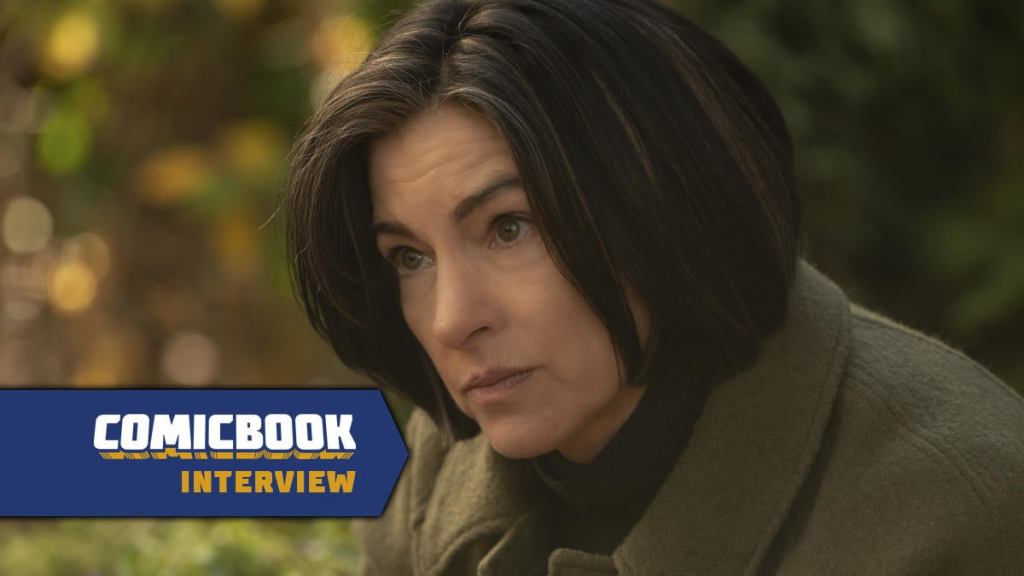
ComicBook: Kira and Eleanor’s dynamic is just so incredible. What was it like finding that dynamic with Keeley, especially given the circumstances that your character is going through?
Rya Kihlstedt: She’s just f-cking great. I mean, really. Keeley’s just solid, grounded. A killer actress. She always shows up ready to work and play. She’s no nonsense, and I adore her, and she makes me laugh. I showed up in Toronto and called her, because I was late to the party [joining in] episode five. I called her and was like, “Can we please have a drink? We’re married. We need to be married with history, and a child.” We met at a hotel restaurant, and I think we ended up spending three hours just talking, talking, talking. We just hit it off immediately, talking about work, life, our own lives, what we’re doing, the show. We just went in circles, and that was kind of it. It really opened up, we were always there to reach out to each other to talk notes, scripts, thoughts. “Let’s try this, let’s try that!” It really led us to play together. I was really lucky.
Was the original Orphan Black something that was already on your radar, or was all of it new to you when the project came your way?
It was already on my radar because I had seen a bunch of the first season. I was blown away by Tatiana Maslany, by her work in it, and what an incredible time she had, really building so many different characters. When I got this, I went back and watched the first season again, and then just kept going because I just wanted to know where we were picking up and what threads were being… You want to know where you’re coming from.
Did you work with Krysten at all in trying to find a shared body language for Eleanor? Watching this episode in particular, just seeing the different eras of her life, it seems like you guys really nailed it.
I’m so glad. That was something that, when I came in, really concerned me, because I was late. By the time I got there, Krysten had already shot four episodes, so there was already a language. It was my job to figure out how to incorporate some of that, and carry it through, because she and Amanda had already started. I was playing a little bit of catch-up, so I think that fell on me a little bit. I think we all would’ve loved to have started at the same time, and have had enough time to find one or two gestures that we could circle back around in a very subtle, gentle way, so it was feathered in and not pointed at.
You performed the Alzheimer’s aspect of Eleanor’s story so beautifully, and it is just so poignant to watch. How did you approach that?
You know what? I talked to [showrunner] Anna [Fishko] a lot about it, about what she wanted, about how to do it. There are so many ways to do it, and how to do it. The truth is, I really, really just trusted Anna and all of the directors in that moment of “How much is too much? How much is not enough? What works?” I did a lot of reading. I read a lot of Oliver Sacks, actually. He writes all these incredible books about people with memory lapses. Just in terms of feeling, I watched a lot and I just read a lot. I am lucky enough to not have Alzheimer’s in my family or dementia yet. So far so good. I have seen some, I have friends who have parents. I just did a lot of talking to people and watching and reading, and then I just trusted my directors and Anna.
What would you say surprised you the most about the experience of working on this entire season?
I think I could answer that a couple ways. I constantly keep bringing up, because to me, it was such an important thing, being on a set surrounded by this many women everywhere, from our producers, to our writers, to our director.
I wore a prosthetic nose in this, so that I had a nose and a profile a little more like Krysten. That was a surprising experience, and a change in who I felt every day.
***
New episodes of Orphan Black: Echoes air Sundays at 10/9c on AMC, BBC America, and AMC+.
This interview has been lightly edited for clarity and length.




